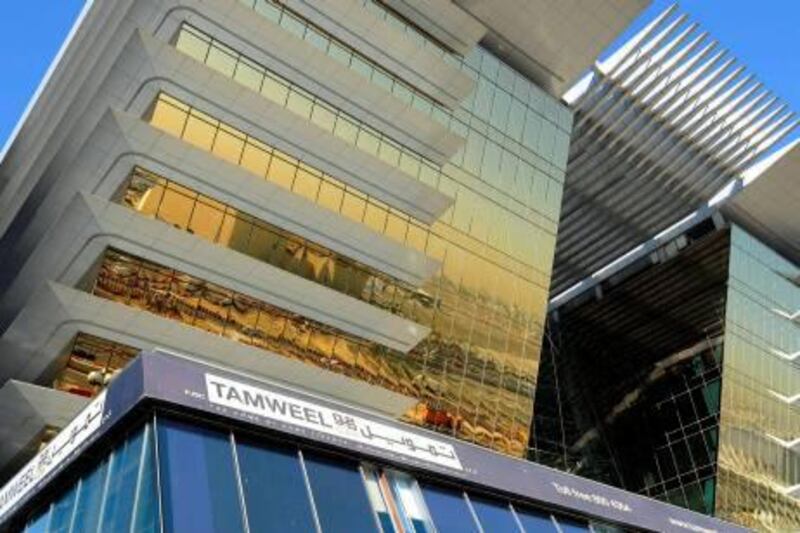Tamweel, one of the country's biggest Islamic mortgage providers, has started to repossess defaulted properties and intends to apply much stricter rules when it starts lending again. Dubai Islamic Bank (DIB) has increased its stake in the company in a move expected to pave the way for Tamweel's return to home lending. Its shares were suspended almost two years ago along with those of its rival Amlak Finance, after both halted lending.
DIB this week became the majority shareholder in Tamweel, increasing its 20 per cent stake to 57.33 per cent. The company had won the right from the Dubai Courts to foreclose on a number of properties of owners who had left the country, said Wasim Saifi, the chief executive of Tamweel. Mr Saifi declined to say how many homes had been repossessed but said the figure so far was in the "low double digits".
"As you can appreciate, especially with Islamic mortgages, foreclosure is very new but in the last few months we've seen a lot of traction," he said. "We're going for foreclosure where we see the customers are not in the country, they've left and we have no other option." Mr Saifi said in most other cases where customers were in financial difficulty the company was trying to "find a resolution which is satisfactory to both".
Tamweel amassed a portfolio of loans valued at about Dh10 billion (US$2.72bn) during Dubai's property boom but faltered in late 2008 when it struggled to secure financing to sustain its lending activities. It ceased doing business that November as a government panel contemplated merging it with Amlak. The DIB moves means the merger is now unlikely to take place. Mr Saifi said this week the link-up with the bank was "the solution for Tamweel" but he could not comment on what the outcome would be for Amlak.
Meanwhile, Emaar Properties, which established Amlak in 2000, is expected to discuss its stake in the firm, which exceeds 45 per cent, at a board meeting tomorrow. Tamweel is among the first lenders to successfully foreclose property after Barclays set a precedent in January when it won Dubai's first repossession case under a 2008 mortgage law. Mr Saifi said while the number of customers defaulting on their mortgage repayments had increased in the past two years, the actual rate of default was "sustainable".
"We have been quite pleased with the way repayment progress has been happening," he said. The deal with DIB means Tamweel will soon get back to the business of lending, Mr Saifi said, pending some regulatory clearances. "It will give more comfort to buyers that banks are looking to give mortgages and give the view that the real estate market may not correct further … I think this comfort is something which the market is definitely looking for," he said.
"The way we address client or property selection and terms will have to be in line with what we've learnt over the last couple of years."






